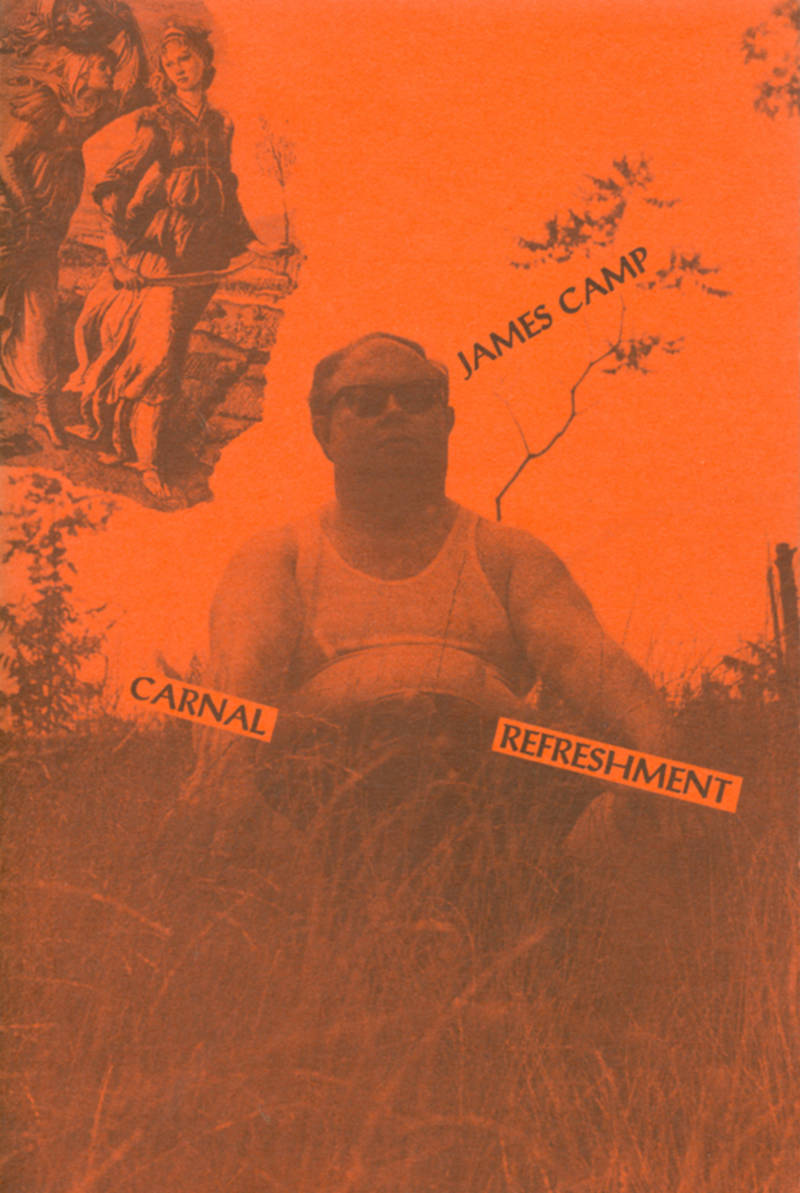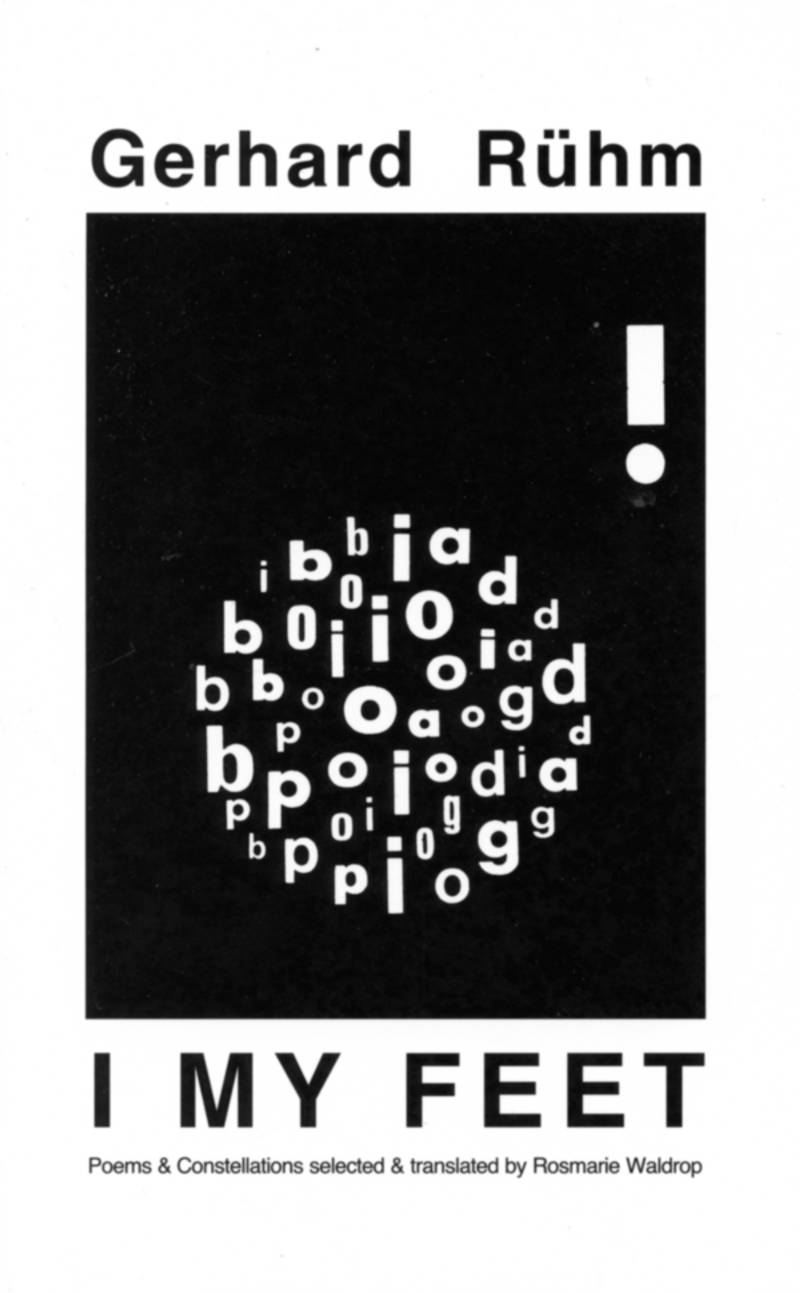Burning Deck
Burning Deck

Carnal Refreshment
"Camp is a master of turning the colloquial idiom into whimsical sardonic humor" — Library Journal
"Camp comes off as a kind of modem day, tongue-in-cheeck Shakespeare. And that, though hardly carnal, is refreshing" — Raymond DiZazzo
"Camp's first full-length solo collection is a welcome and well-made addition to Burning Deck's amazing list. The poems and songs are lively and very often funny, but not always as light as might appear on the surface.... There is an obvious command of the traditions he employs, allowing him to turn lament into satire" — Bruce McPherson

I My Feet
Gerhard Rühm, Rosmarie Waldrop
Gerhard Rühm is a radical experimenter, a restless explorer of traditions and genres, atomizing their elements in order to recompose them with conceptual precision and a multiplicity of compositional techniques. He has worked with music and visual art, but basically the world is language for Rühm, the dictionary its body, and the alphabet its backbone.
Gerhard Rühm was born in Vienna in 1930. He began by studying composition and Oriental music, but came to devote most of his energy to literature, esp. concrete poetry. His aim has been nothing less than making language an aesthetic medium on a par with music and visual art.
Rühm is also known for his editions of Baroque and Expressionist poets. His prizes include the “Grosse Österreichische Staatspreis” (1991) and the “Hörspielpreis der Kriegsblinden” (1983). From 1972-95 he taught at the Hamburg Academy of Fine Arts. He now lives in Cologne.
“Orgy, for R. means semantic excess and turbulence, the coitus of words outside their usual use.”—Mittelbayerische Zeitung
“The almost constructivist compositions derive their solidity from the musical use of rhyme, assonance , alliteration and rhythmic figures, and not least through song- and sonata elements.” — Klaus Peter Dencker, Nürnberger Nachrichten
Rosmarie Waldrop's most recent books of poetry are Blindsight (New Directions) and Love, Like Pronouns (Omnidawn). She has translated Edmond Jabès (her memoir, Lavish Absence: Recalling and Rereading Edmond Jabès was published by Wesleyan University Press in 2002), Jacques Roubaud, Emmanuel Hocquard, and, from the German, Friederike Mayröcker, Elke Erb, Oskar Pastior.